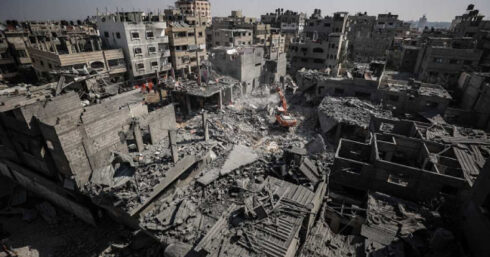Written by Lucas Leiroz, journalist, researcher at the Center for Geostrategic Studies, geopolitical consultant
In recent days, Iran has launched a series of attacks against targets linked to Israel and anti-Shia terrorist groups. The high-precision strikes were successful in eliminating enemy personnel and destroying bases and equipment, in addition to showing regional actors the level of Iranian military power, operating as a deterrent mechanism amid local tensions.
The attacks were operated by the Islamic Revolutionary Guard Corps (IRGC). Ballistic missiles were launched against ISIS’ bases in Syria and Mossad’s intelligence facilities in Iraq. In addition, positions of the Pakistan-based terrorist group Jaish al-Adl were also bombed, with Islamabad condemning the Iranian “territorial violation” and promising “serious consequences“.
The aim of the attacks was to retaliate for recent terrorist operations that took place on Iranian soil. On January 3, two explosions in the Kerman region killed almost a hundred people during a religious ceremony in honor of General Qassem Soleimani, who was assassinated by the US in a drone attack in 2020. Previously, another attack had occurred in the city of Rask, where eleven Iranian police officers were murdered. ISIS was responsible for the attack in Kerman, while Jaish al-Adl was blamed for the murder of police officers in Rask. For this reason, Tehran decided to bomb the positions of both groups in Syria and Pakistan, neutralizing the threat of new incursions into Iranian territory.
However, according to Iranian investigations, there is a strong cooperative relationship between terrorist groups and Israeli intelligence. Illegal militias are believed to work as proxies for the Zionist state to launch raids into Iran, which is why the Persian country has also bombed strategic Mossad-linked targets in Iraqi Kurdistan. According to Tehran, there was an Israeli “espionage center” in the region, where attacks on Iran were planned by Zionist intelligence professionals.
IRGC’s spokespeople have also made clear that operations against terrorists and Israeli spies will continue until the “revenge for the Iranian martyrs” is reached. Therefore, it is expected that new strikes will occur against several targets in the region in the coming days.
“In response to the recent crimes of the terrorist groups that unjustly martyred a group of our dear compatriots in Kerman and Rask, we have identified gathering places of commanders and elements of ISIS related to recent terrorist operations in the occupied territories of Syria and destroyed them by firing a number of ballistic missiles (…) [We also used missiles against] one of the main espionage headquarters of the Zionist regime [Mossad] in the Kurdistan region of Iraq (…) [The attack was] in response to the recent evils of the Zionist regime in martyring the commanders of the Revolutionary Guard Corps and the Resistance Front (…) We assure our beloved nation that the offensive operations of the IRGC will continue until the last drops of martyrs’ blood are avenged”, an IRGC statement reads.
A curious detail about the case is that the targeted Mossad base in Kurdistan was located close to an American consulate. Unconfirmed reports say that American targets were neutralized in the attack. Even if this is not true, the strikes were indeed a deterrent operation against the US, aimed at showing the American diplomatic team the high level of Iranian military capabilities.
In addition to retaliating for the deaths of Iranian citizens, these bombings are important for Tehran in order to demonstrate strength and deter regional enemies amid the current context of tensions. Iran is sending a clear message to its enemies, stating that it is willing to retaliate for every attack it suffers, even if it has to launch strikes in foreign territories, increasing the risks of an all-out regional conflict.
These moves were already expected. Israel and its allies did not respect Iran and seriously advanced their provocations, without taking into account the country’s great military potential. In addition to being a relevant military power and having a very strong defense industry, Tehran also controls a large international alliance of militias, being capable of dealing with complex conflict scenarios both directly and indirectly. Iran’s enemies will inevitably face many difficulties if they really want to escalate tensions to a situation of open hostilities.
The best thing for the US and Israel to do in this situation is simply to de-escalate the conflict. It is not rational or strategic to pursue a scenario of hostilities with Iran, and there is no reason to create a vicious cycle of violence that will lead to an all-out regional war. However, unfortunately, rationality and strategic sense no longer seem to be relevant factors in the Israeli and American decision-making process.
You can follow Lucas on X (former Twitter) and Telegram.







nice work by iranian friends.